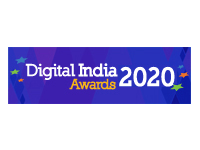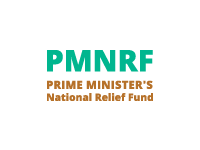Introduction:
Technology Information Facilitation Programme (TIFP) is one of the components of Technology Promotion, Development and Utilization (TPDU) Programme of the Department of Scientific and Industrial Research (DSIR). The broad objective of the programme is to generate endogenous capacities for the development and utilization of digital information resources and provide inputs to S&T research and industrial development.
In todays scenario, given the quality of connectivity, it is being strongly felt that the Programme should endeavour to strengthen the resource base of available information and provide a mechanism for optimal utilization of the resources in the country. TIF would also facilitate collaborative research among industries and institutions.
Information and Communication Technologies (ICT) are now internalized to the socio-economic fabric of the country. These all-pervasive technologies can be fruitfully applied to all sectors of the economy, and the community of the scientific & industrial research workers could be one of the major beneficiaries.
In the recent past, public and private sector companies have made significant investments to develop infrastructural facilities including telecom networks. It however needs to be considered how best such infrastructure could be utilized for scientific & industrial research and how the new ICT tools are to be used for application to a variety of domains in the Indian environment.
TIF is, therefore, will be implemented as a co-operative and collaborative venture and built around the existing infrastructure, wherever possible. In this the strategy would be to:
- Concentrate on creation of Indian S&T content,
- Avoid duplication of efforts,
- Ensure minimum overlapping,
- Promote maximum utilization of existing facilities, and
- Utilize the internet technology,
| Objectives |
|---|
|
The specific objectives of TIF programme are to:
|
Strategies and Activities
The objectives of TIF are proposed to be achieved through a set of strategies and specific activities under each strategy. The strategies and the activities under each given strategy are as listed below:
- Development of endogenous capacities
Promotion of content development
Industrial trend reports
Information support for industrial clusters
- Digital and indigenous knowledge base
National websites/ servers
Indian digital library of theses and R&D publications
Documentation of traditional knowledge and folk wisdom
Information for community digital provide and opportunities
- Establishing knowledge net
Promotion of information access and sharing
Virtual systems
Electronic publishing of selected Indian S&T materials
Open archive initiatives a web alternative to scholarly communications
- Mapping of national S&T productivity
- Education, training and R&D
Surveys and R&D studies
Manpower development programme
International activities
| Promotion of Content Development |
|---|
|
Indian capabilities have gained international recognition in the field of ICT, particularly in software development. India also has a large population of domain experts in every field of science and technology and almost all of them have adequate proficiency in English. This provides an enabling environment for content development to meet the national and international demands. However, this latent potential for content development is yet to be transformed into significant business opportunities. Non-availability of the requisite know-how including entrepreneurial and marketing capabilities is considered to be one of the major reasons for the current situation. Capacity development in the area of content development is therefore considered important and the institutions having the requisite infrastructure and technical competence would be assisted to take-up capacity building in content development. In particular, TIF would support specific projects on the following:
|
Industrial Trend Reports
DSIR has prepared a series of industrial trend reports, though many of these are presently outdated. DSIR would provide assistance to professional institutions and experts for selectively updating of such reports which are of current interest and preparing of new ones. These reports need to be published in e-format.
Information Support for Industrial Clusters
Providing Science & Technology Information support to small and medium enterprisers (SMEs) in Industrial clusters producing common range of products by leveraging the concept of virtual information system and knowledge management will be covered under TIF Programme.
Information Support for Industrial Clusters
Providing Science & Technology Information support to small and medium enterprisers (SMEs) in Industrial clusters producing common range of products by leveraging the concept of virtual information system and knowledge management will be covered under TIF Programme.
National Websites / Servers
Collection, collation and hosting of nationally generated contents on Science & Technology in national websites/servers will be a major activity on creation of digital content and indigenous knowledgebase.
Indian Digital Library of Theses and R&D Publications
Establishing suitable mechanism for capturing full text information of dissertations/theses and R&D reports of Government funded projects and publishing such material the same through electronic media will be a part of TIF Programme.
Documentation of Traditional Knowledge and Folk Wisdom
Significant efforts are already underway in several institutions to document and capture the essence of traditional knowledge existing in different societies across the country. These efforts have to be expanded and the knowledge base existing in different communities has to be systematically documented and organised into databases.
Information for Community- Digital Provide and Opportunities
The diffusion of ICT for community good so as to reduce digital divide and enhance digital opportunities for all is an activity proposed to be pursued under the TIF Programme. It includes:-
- Systematic documentation of efforts and experiments for bridging the digital divide
- Identification of best practices and lessons after analyses of various efforts/experiments
- Linking the technology developers with the users of information at the lowest levels
- Experimentation with various modes of content for information kiosks
Promotions of Information Access and Sharing
A number of Scientific Institutions in the country have been engaged in the development of databases on their subject domains. Similarly, several scientific libraries in the country possess invaluable collection of scientific materials. The TIF proposes to promote the scientific organisation of these resources and introduction of data sharing mechanisms or activities.
Virtual Systems
The concept of virtual information systems has wide applications in a variety of situations in R&D and academics. It could be a knowledge network, connecting the information resource base of a set of institutions. The products and services could be shared by participating institutions and also by those not contributing to the system. It could be a virtual laboratory networking several specialized laboratories. Similarly, virtual teaching facilities would also be promoted by TIFP.
Electronic Publishing of Selected Indian S&T materials
Indian journals, barring a few exceptions, suffer from poor visibility and readership. This malady is disincentive to the Indian S&T workers to publish their significant contributions in Indian journals. Publishers also face problems in making upfront investments on printing, dispatch and storage of back runs. Electronic publishing can therefore help improving the situation.
The following activities are contemplated under TIF.
- Publish select Indian journals on CD-Rom and make a worldwide pitch to market them
- Create a website to host electronic version of select Indian journals and also the back issues of those Indian journals with high impact factor
Open Archive Initiatives (OAI) a web alternative to scholarly communications
There has been a growing realization that with the growth of internet use, the printed journals may no more be able to survive as a primary means of scholarly communication. The electronic medium offers faster, wider and cheaper means of communication as compared to the printed medium. It is therefore proposed to support Open Archive Initiative of journal articles published in India. Academic and Research Institutions would be encouraged to set up institutional or national open archives in particular disciplines - covering disciplines in which India has strength like mathematics, statistics, and geo-science, etc.
Mapping of National S&T productivity
The health of Indian science will be regularly studied through the National Mapping of Science programme. Use of Scientometric techniques for application on patent information will be explored. Efforts will be made to develop new techniques and tools of analysis. In order to give a fillip to the programme, it is proposed to establish a common facility for Scientometric studies. The full potential of Scientometrics remains to be realized in India. The National Scientometric Facility has to subscribe to the data sets and procure required hardware and software for analysis. Standardization of data elements, synthesis of results from different databases, training and other such activities of integration and accumulation can then be taken up on a cost-effective basis.
The skill base hitherto limited has to be enhanced through elaborate manpower development.
Surveys and R&D Studies
It is necessary to undertake studies and surveys to identify user needs assess new technologies, and to develop new tools and techniques. In addition, it is also necessary to take up sector specific studies to assess the implications and impact of IT and media convergence. Such studies would help to evolve policy parameters to assess the sectoral implications of ICT, evolve new indicators to measure the changes, to explore new opportunities and so on.
Education & Training
The Human Resources Development activities would target two sets of professionals -- information users, and information managers/handlers. Through the MPD programme, it is intended to raise the intellectual skills of knowledge workers to a level at which the beneficiaries would be effective at their own initiatives. In order to raise the skills, DSIR propose to take up both formal and informal programmes on the following lines.
- Promote skill development of information practitioners and subject specialists in new information resources and use of tools for knowledge management.
- Annual national conference to facilitate interaction among information service providers, Information users and information industry. Organize a series of annual international workshop on IT and exploitation of S&T information resources in developing countries
- Establish a regular and long-term training facility on Knowledge Management in national institutions to provide quality education to students in preparing them to take up jobs such as digital librarians, content managers, information economists, human-computer interface specialists, etc.
- Undertake User Education on various sources of information for practicing S&T workers.
- Publish an information bulletin to disseminate information on new technologies, and research results, etc.
| Proposals Eligible for Assistance | ||||||||||||
|---|---|---|---|---|---|---|---|---|---|---|---|---|
|
Although each research project is important for national development, the DSIR under its Industrial R&D and Technological Information Facilitation (TIF) Programme provides assistance only for those projects which have a direct relevance to the programme objectives. The activities listed in the previous sections and in particular information content related activities would be given priority in providing assistance under the programme. Institutions Eligible for AssistanceProfessional/research institutions with qualified engineers, scientists, information professionals, statisticians and economists and belonging to one of the following categories are eligible for assistance under the scheme.
Quantum of Financial Assistance and Method of ReleaseAssistance can be by way of financial support (partial or full) and technical guidance. The type of assistance required by the institution should be clearly indicated in the proposal. However, financial assistance will be provided only for meeting expenditure on Manpower, Equipment, Consumables, internal travel and other miscellaneous expenditure. No support is provided towards basic infrastructure and buildings. The assistance will be released on installments and will be linked to specific milestones to be achieved as per time schedule indicated in the proposal. The release would also be dependent on the completion of formalities like submission of progress reports, Statement of Expenditure and Utilization Certificates. Submission of the ProposalsTo facilitate quick processing, proposal should be prepared and submitted in the format prescribed in this document, to facilitate quick processing. The following documents/ papers are also required to be submitted along with the proposal.
Institutions, other than Government, are required to attach the following:
The proposal may be submitted any time during the Financial year. It would take about 3 months for the Department to take a final decision. Duration of the ProjectThe project should be time-bound, normally for duration of less than 3 years. Sanction of the Project and Release of FundsThe project proposals received for assistance would be considered by the Technical Advisory Committee (TAC) of the Department. The Committee may also take the advice of an internal Screening Committee duly constituted for the purpose and/or the advice of external experts and/or the Department concerned with the subject matter. The proposals, which are accepted by the TAC, will be further processed for administrative/financial approval and sanction letter would be issued indicating the amount of assistance under different budget heads, schedule of payment and other conditions of assistance. The institutions receiving the assistance are then required to accept the conditions formally and sign a bond in a judicial stamp paper of Rupees Ten only or an MOU as the case may be. On signing the agreement and its submission, the first installment of assistance would be released. Progress Reports and Utilisation CertificatesA quarterly progress report indicating the physical and financial progress of the project, and financial report has to be submitted by the institutions receiving assistance from the Department. The Principal Investigator must ensure that progress reports in the prescribed format ( Format D (RTF, File Size:34.13 KB)) reach the department by 15th of the month beginning every quarter. The institution is also required to submit a utilization certificate (Format E (RTF, File Size:13.28 KB) F (RTF, File Size:20.4 KB)) duly signed by the Head of the Institute/ Registrar of University in case of Government / Government affiliated bodies, universities and deemed universities while claiming second and subsequent installments. In case of other types organisations including NGOs, the utilization certificate will be certified by a Chartered Accountant for release of second and subsequent installments. Dissemination of Project/ Study/Survey ReportsThe DSIR will have the right to make available the copies of the project/ study/survey report to the users including Central and State Government agencies and the National Library. It may also place a summary of the report on its website. However, DSIR will not be responsible for the findings or opinions expressed in the report and the host institution, which prepares such report, will be responsible for the intellectual content and claims. The host institution is also required to send the primary and secondary data collected as a part of the project to the Ministry in a CD and as an ASCII file or as any other commonly used database files. The institution is also free to publish their study/survey report. However, it should be clearly acknowledged on the first page of the report/ document that the document has been prepared with financial support provided by the Department of scientific and Industrial Research. It should also contain a disclaimer that the Ministry is not responsible for the findings and opinions expressed in the document. In the case of workshops/ seminars, the sponsors name Department of Scientific and Industrial Research has to be prominently displayed on the banners and any other documents like brochures, course work, workshop schedule, attendance certificates, reports, etc, prepared by the institution. Other conditions of assistance
|
List of Projects Supported
Click here to see the list of Projects Supported under TIFP [13 JUL 10]
| Guidelines for Submission of Project Proposals for Financial Assistance |
|---|
| Download as PDF |
DSIR invites Project Proposals from interested institutions on Establishment of Incubation Centre for Content Development and Management![]() under Technology Information Facilitation Programme [21 MAY 07]
under Technology Information Facilitation Programme [21 MAY 07]
For additional information, Contact:
Technology Information Facilitation Programme
Department of Scientific & Industrial Research
Technology Bhawan, New Mehrauli Road
New Delhi-110016
Phone. 011 2686 3805, 26590446
Fax. 011 26960629, rra@nic.in
Phone: 26518103, 26590404
Fax : +91 11 26960629, 26518103
Email : rajkumar@nic.in





















